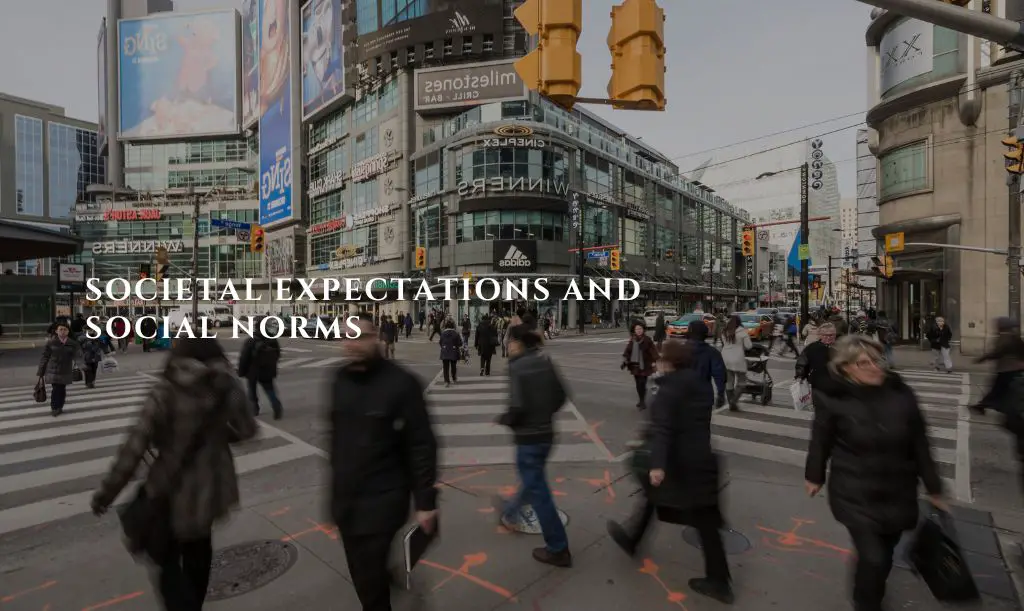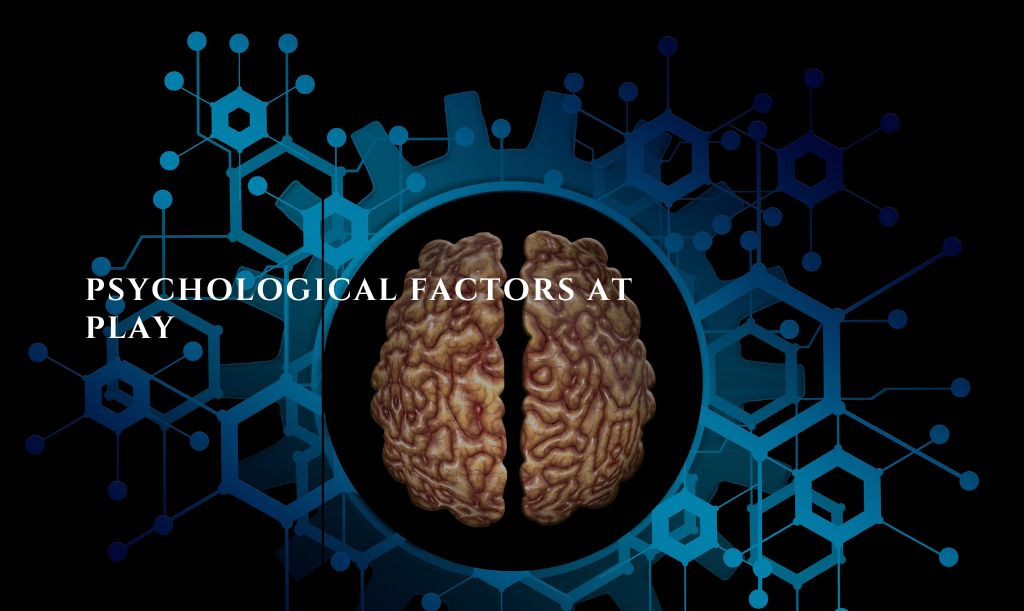Human behavior is the vast and mysterious realm that keeps us perpetually intrigued and utterly perplexed.
It is an enigma wrapped in a riddle, a puzzle we struggle to solve with every passing moment.
Just when we think we have someone figured out, they surprise us with their actions and choices.
Our understanding of human behavior is forever evolving, but one thing remains certain: it is far from simple.
We are all guilty of wearing masks in our interactions with others – a facade that shields our true selves from the prying eyes of society.
These masks are molded by societal expectations and social norms thrust upon us from the moment we come into this world.
We learn to conform, to fit into predefined molds that dictate how we should behave and present ourselves to the world.
“She Acts Different When We Are Alone”
But then there’s that intriguing scenario: when she acts different when we are alone.
It’s as if a switch has been flipped, revealing a side of her that remains unseen by others.
Behind closed doors, away from the watchful eyes of society, her true self emerges – raw, unfiltered, and beautifully authentic.
It leaves us pondering why this transformation takes place.
Is it simply an act put on for public view?
Or is it an expression of genuine emotions held back by societal constraints?
Perhaps it stems from a deep-rooted fear of judgment or rejection lurking in the recesses of her mind.
Whatever the reason may be, this peculiar phenomenon sheds light on the complexity lurking beneath our public personas.
It reminds us that there is so much more to each individual than what meets the eye – layers upon layers waiting to be unraveled.
The Mask We Wear in Public (Societal Expectations and Social Norms)

From the moment we step foot outside our sanctuary of solitude, we are expected to conform to an array of societal expectations and social norms.
These expectations are relentlessly imposed upon us, subtly dictating our every move.
We become actors on a stage, donning masks that hide our true selves, all in an effort to appease the judgmental eyes around us.
Cultural values play a significant role in shaping individual behavior.
Each society has its own set of norms and conventions that govern how one should behave in public.
Some cultures prioritize collectivism, where conformity and harmony within the group take precedence over individual expression.
In such societies, it becomes essential for individuals to mold themselves according to societal standards to avoid any form of ostracization or rejection.
The pressure to conform is further fueled by a deeply ingrained fear of deviating from what is considered “normal.” We live in an age where image is everything – where appearances hold more weight than substance.
Society demands that we maintain an impeccable image at all times; anything less is deemed unworthy or unacceptable.
Behind Closed Doors
Away from prying eyes lies a realm where authenticity reigns supreme – behind closed doors, in intimate settings.
Here lies a sanctuary unburdened by the constraints imposed upon us by society.
It is within these private realms that one can shed their socially constructed facade and embrace their true selves without fear of judgment or ridicule.
Authenticity and vulnerability become paramount as individuals seek genuine connections within these private spaces.
In this safe haven, one can freely express thoughts and emotions that would otherwise be repressed in the presence of others.
The freedom to be unapologetically oneself is a liberating experience, allowing for personal growth and emotional well-being.
It is through these intimate moments that we truly understand ourselves and establish a deeper connection with others.
When we let go of the masks we wear in public, genuine bonds can be forged, providing solace and understanding that mere surface-level interactions cannot offer.
Psychological Factors at Play

Deep within the recesses of our subconscious lies a world of desires and impulses that shape our behavior, particularly when we are alone.
Freudian theory provides a fascinating lens to understand these unconscious influences.
According to Freud’s id, ego, and superego dynamics, we are driven by primal instincts and buried desires that find their release in private settings.
Our deepest longings, often suppressed under societal expectations, manifest themselves when the watchful eyes of others are absent.
It is in this realm where we can truly explore the depths of our psyche without fear of judgment.
How Desires And Impulses Shape Our Actions In Private
Our private domain becomes a canvas on which we paint our true selves.
Desires that society may deem unacceptable or inappropriate find an outlet when there is no one around to judge us.
Whether it be indulging in guilty pleasures or exploring unconventional interests, when alone, we are free to embrace our authentic selves without fear of scrutiny.
Conflict Between Societal Expectations And Personal Desires
Yet, within this freedom lies a paradoxical struggle between societal norms and personal desires.
Society imposes upon us an intricate set of rules that dictate how we ought to behave in public spaces.
But once behind closed doors, the battle begins—a constant clash between conforming to norms or satisfying our truest needs and wants.
This conflict can manifest itself through secretive behaviors or even rebellion against societal conventions.
Emotional Intimacy As A Catalyst For Change
Trust-building exercises serve as bridges that foster emotional connections capable of influencing behavioral shifts like no other force can.
Sharing Secrets And Deep-Rooted Fears
When we find solace in the presence of another person who truly understands and accepts us, the walls we construct around ourselves crumble.
In this intimate space, we are compelled to share our most guarded secrets and expose our deepest fears.
It is through this vulnerability that true emotional intimacy is achieved, opening doors to a profound level of understanding.
Mutual Understanding Leading To Behavioral Shifts
As emotional intimacy grows, so too does the potential for personal growth and change.
Through shared experiences and mutual understanding, we become more attuned to each other’s needs and desires.
This newfound awareness may lead to shifts in behavior as we strive to align our actions with our partner’s expectations or create a harmonious bond built on empathy.
The psychological factors at play when she acts differently when we are alone are indeed complex.
Unconscious influences driven by innate desires mix with the conflict between societal expectations and personal desires.
Emotional intimacy serves as a catalyst for change by fostering trust, encouraging vulnerability, and promoting mutual understanding.
Together, these factors create a powerful cocktail that shapes behavior behind closed doors—a delicate dance between authenticity and conformity.
She Acts Different When We Are Alone (Exploring Possible Explanations)

The fear of judgment and rejection is the silent puppeteer pulling the strings of our actions in public.
How many times have we acted differently because we were so darn worried about what others might think?
It’s as if society has bestowed upon us this unwritten code of conduct, dictating how we should behave and suppressing our true selves.
This fear of judgment manifests itself in social anxiety, that nagging feeling that paralyzes us from expressing our authentic selves.
We become self-conscious, constantly second-guessing every word we say, every move we make.
But here’s the thing: only when we overcome this self-consciousness can we truly start to break free.
Overcoming Self-Consciousness Through Trust-Building
One way to combat social anxiety is by building trust with those around us.
When we surround ourselves with a close-knit group of individuals who accept and support us unconditionally, it becomes easier to shed the mask we wear in public.
These trusted confidants create a safe space where judgment is left at the door, allowing for open communication and authentic expression.
By fostering strong relationships based on trust, we can gradually chip away at our self-consciousness and begin embracing our true selves.
Creating Safe Spaces For Open Communication
In addition to building trust with others, creating safe spaces for open communication is crucial in unleashing our genuine behavior.
Society often dictates what topics are acceptable or taboo; however, when faced with an intimate setting where vulnerability is encouraged rather than frowned upon, amazing things happen.
We lay bare our thoughts and emotions without fear of repercussion or judgment.
These safe spaces empower us to share our fears and insecurities openly, fostering deeper connections and transforming how we act both alone and in public.
Personal Insecurities Influencing Behavior
Deep-rooted fears impact how we perceive ourselves and, consequently, how we behave.
We often compromise our authenticity to protect ourselves from potential criticism or rejection.
Our behaviors are often shaped by deep-rooted fears instilled in us since childhood.
Perhaps it stems from a fear of not being good enough, smart enough, or attractive enough.
These insecurities cloud our judgment and make us question our worthiness.
These fears seep into every aspect of our lives, affecting how we interact with others and even how we behave when alone.
Breaking free from these limitations starts with acknowledging their existence and understanding that they do not define us.
Building Self-Esteem Through Positive Reinforcement
To combat personal insecurities, we must actively work on building self-esteem through positive reinforcement.
Celebrating small victories and recognizing our strengths helps chip away at those deeply ingrained doubts about ourselves.
Surrounding ourselves with individuals who uplift us rather than bring us down can make a world of difference in boosting our self-worth.
By consciously shifting the narrative within ourselves, emphasizing self-acceptance over self-criticism, we can gradually shed the mask imposed by personal insecurities.
Encouraging Self-Acceptance To Promote Genuine Behavior
The ultimate goal is to foster an environment that encourages self-acceptance unconditionally.
When society starts embracing all facets of human existence without judgment or prejudice, individuals will feel liberated to be their authentic selves both in public and private settings.
It’s time to challenge societal norms that limit individual expression based on insecurities and fears.
Let us create a world where being genuine is celebrated and individuality is cherished.
Intimacy as an Amplifier

When it comes to understanding why she acts different when we are alone, the concept of intimacy cannot be overlooked.
Intimacy has a way of transforming relationships, deepening emotional connections, and unraveling hidden aspects of one’s personality.
In this intimate setting, where vulnerability and trust thrive, people often feel more comfortable expressing their true thoughts and emotions.
She Acts Different When We Are Alone (Conclusion)
It is important to recognize that every individual possesses multiple layers within their personality – some of which are more easily visible than others.
When she acts differently when we are alone, it is not necessarily an act of deceit or manipulation, but rather a manifestation of the power of intimacy.
In the realm of private spaces, where vulnerability and trust reign supreme, individuals feel liberated to express their true selves without the weight of societal expectations.
It is within these intimate connections that we can discover the depth and authenticity that lies beneath the surface.
So let us embrace the beauty of intimacy, cherishing those moments when we can witness someone in their truest form.
Instead of questioning or feeling betrayed by these shifts in behavior, let us celebrate them as a testament to the strength and sincerity of our relationships.
By fostering an environment where authenticity thrives, we not only deepen our emotional connections but also inspire others to embrace their true selves.
In doing so, we create a world where genuine acts are empowered and celebrated.
Related Articles:
- https://lovebridgeguides.com/girlfriend-always-wants-to-go-out/
- https://lovebridgeguides.com/my-ex-walked-right-past-me/
- Does A Prom Date Mean Anything? (Answered!) - 20 February 2024
- Boyfriend Refers To Me In Third Person (Explained!) - 20 February 2024
- Is Sending Memes Flirting? Find Out Here! - 20 February 2024


